Transcribed from the 3 November 2020 episode of This is Hell! Radio (Chicago) and printed with permission. Edited for space and readability. Listen to the whole interview:
Anarchists don’t seek to take power. They seek to empower people and each other from the bottom up. They’re not interested in seizing control in order to tell people what to do.
Chuck Mertz: We are told anarchy is dangerous: anarchists are a threat to our safety and security. Over the last couple of days, businesses across the United States were boarding up windows. Throughout the summer, we are told that along with “Marxists,” anarchists were looting and rioting with no perceptible goal but mayhem. None of this makes sense on the face of it, and leads you to wonder: what is anarchism? When it is mentioned in the media, it is never defined—other than being an epithet used against protesters they don’t like.
Here to help us understand a political idea that is older than anarchy itself, political theorist Ruth Kinna is author of The Government of No One: The Theory and Practice of Anarchism. Ruth is also author of William Morris: The Art of Socialism and co-editor of the journal Anarchist Studies. She is professor of political theory at Loughborough University, working in the department of politics, history, and international relations, where she specializes in political philosophy.
Welcome to This is Hell!, Ruth.
Ruth Kinna: Thank you for having me.
CM: You start by mentioning the Seattle protests back in 1999. You write, “In 1999, activists in Seattle spectacularly sabotaged the meeting of the World Trade Organization. The event launched what became known as the alter-globalization or global justice campaign, a complex anti-capitalist movement of movements widely described as anarchist.”
We covered the WTO protests live here on This is Hell!. The WTO still exists. So how did the battle in Seattle have an impact on the political conversation—or maybe more importantly, on our political imagination? What is missed when we don’t recognize the impact Seattle may have had on the overall political imagination?
RK: Seattle reminded people that you don’t need political parties in order to organize actively and politically, or to make a statement and express your ideas. The global justice movement was thought of as anarchist because it was a network, it was horizontal, it was leaderless, and it didn’t seem to have a political program—it had a set of principles and benchmarks. It brought people together across the world without any central organization. It was a grassroots movement, and that was why it was associated with anarchism.
CM: So is anarchism, then, a political ideology? Is it a political concept? Or is it just an ongoing conversation about how to attain egalitarianism?
RK: It’s a practice. It’s a way of thinking about socialist politics. There’s a distinctive tradition of thinking within socialism that we can call anarchist, which is distinguished partly by its rejection of central pastoral organization and programmatic politics. But importantly: anarchists don’t seek to take power. They seek to empower people and each other from the bottom up. They’re not interested in seizing control in order to tell people what to do.
CM: Do you think that’s a big part of why it’s misunderstood? Because for everybody else—especially here in the United States today—it’s just about winning, no matter what impact that might have on democracy.
RK: It’s misunderstood partly because it seems to reject everything that we hold as essential to our political order. In rejecting political parties, in rejecting the institutions of the state, and in rejecting the institutions of government it appears to be entirely negative. I think that’s a mistake. The other reason that it’s misunderstood is simply because anarchists adopted, to describe their own politics, a term that was already associated with chaos. The idea that we have these political institutions in order to avoid tearing each other to pieces because we can’t cooperate by ourselves and we can’t organize our political affairs ourselves is quite a profound prejudice, and one that anarchists want to attack. But it’s very difficult to encourage people to reexamine those kinds of ideas.
CM: Why embrace a term that already meant chaos?
RK: It’s a good question. When it was first adopted in the 1840s, we didn’t have the same sorts of institutions—this was in Europe in the 1840s, in France in particular. One of the things that the anarchists wanted to draw attention to was the fact that they weren’t just another player on the ideological scene; they were fundamentally questioning the principles of order that were being advocated pretty much by everybody, whether they thought of themselves as conservative or republican or radical. The fundamental assumption that people can’t cooperate and develop institutions, forms, and practices by themselves is the idea that they wanted to question and challenge. I think that’s why they adopted the provocative term anarchist.
CM: You write, “The movement was by turns dismissed as unbalanced and unthinking.” My original question was going to be about why there is this belief that anarchism is unbalanced and unthinking, but I think a better question to ask is what it reveals about the person who sees anarchism that way. What does it reveal about their understanding of anarchism?
RK: It’s a knee-jerk reaction, isn’t it? A lot of movements that challenge the status quo are often dismissed as being idealistic, utopian, unreasoning, impossiblist. We can look back in history and see a whole catalog of these kinds of movements. It’s not that long ago that people who called themselves democrats were being dismissed as crazy people who were advocating mob rule and the disorder of natural hierarchy, as if that were an impossible dream. There’s a knee-jerk reaction, and an unwillingness to engage with the literature of anarchism and the movements that anarchism has spawned.
CM: You also mention the aggressive and often violent reaction that police have to anarchy, to anarchists, to anarchism. Does anarchism represent a violent threat to the state, and the police are merely reacting to that provocation by anarchism? Is the aggressive police reaction to anarchists understandable, as anarchism is seen as (and is) a real threat to the state?
Anarchy works at all levels and at all times, and it becomes visible in moments of crisis when the state fails to make decisions and fails to provide the services that it promises.
RK: The history tells me that there is a violence that’s associated with anarchism. In the nineteenth century, anarchism was associated with a wave of high-profile assassinations and the advocacy of violence against leading politicians. But the background to anarchism and the way that history unravels is explained by the repression that was meted out against anarchists—and not just anarchists, other socialists too—in the first place. The events that crystallize anarchism in Europe and America are examples of state aggression which in turn causes its own reaction. That’s really how the reputation for violence grows.
It’s undoubtedly true that there is a current within anarchism which is confrontational and has taken up arms. But compared to the violence that’s being meted out against them, it’s really quite unbalanced. In Europe, the first so-called anarchist bomb was planted by the police, it wasn’t planted by anarchists.
CM: That’s also one of the theories when it comes to the Haymarket riots here in Chicago: that the first bomb there may have been planted by police as well.
You point to these two moments: the Paris Commune and the Haymarket riots. Does anarchism emerge during crisis? Is anarchism defined by crisis?
RK: I don’t think it’s defined by crisis, but I think it’s quite visible in moments of crisis—in quite unexpected ways. We’re in a crisis now caused by the pandemic. One of the things that’s really noticeable about the pandemic is the way in which it’s triggered a whole mass of mutual aid associations—that is, voluntary organizations that have been organized by community activists and people working in their local environments in order to support and help each other. Anarchists would point to those kinds of experiments and say that’s natural cooperation; that’s people who want to make sure that people’s needs are met. It’s about people who are giving their time and energy and resources without any expectation of return.
We tend to overlook those kinds of examples of anarchy in action, and focus instead on the smoking bomb in order to give ourselves a thrill. But anarchy works at all levels and at all times, and it becomes visible in moments of crisis when the state fails to make decisions and fails to provide the services that it promises.
CM: Is anarchism criminalized as a political idea? What explains why anarchism is more policed, more criminalized than say, fascism or neo-fascism is?
RK: That’s also an interesting question. Part of the explanation for that is anarchists typically challenge all kinds of moral norms and practices, particularly in areas of sexual liberation. They were pioneers of sexual liberation, they challenged the authority of the church, they challenged all forms of domination. That made them a real threat to the established order; competing for political power in order to change a system of distribution wasn’t quite so frightening somehow. Small, often very small, groups of activists often included high numbers of women who refused to adopt marriage laws and attacked marriage as legalized prostitution—all of these attacks put anarchists on the outside. They made them very dangerous and threatening people.
CM: You write, “Being anarchist means challenging the status quo to realize egalitarian principles and foster cooperative, non-dominating behaviors.” Is aggressive policing towards anarchists and anarchism because egalitarianism is seen as a violent threat to the state? Is anarchism militant egalitarianism?
RK: Anarchism is militant, and anarchists present a challenge to established orders because they adopt the principle of direct action: instead of working through representative institutions, anarchists argue that you can only resolve the problems that confront you by taking action yourself. That means you’re encouraging people to mobilize in ways that seem to be unconstrained. We normally rely on political parties or other kinds of activist groups to call a protest, to determine what the marching order is going to be, and who is going to speak and when. An anarchist takes a different approach, and that immediately makes the policing problematic. That’s why they get this aggression from the police: this mass direct action as opposed to an organized rally.
CM: Is anarchism a political lifestyle, if you will, that can be lived alongside the state?
RK: Lifestyle is a problematic term, because some people tend to think that “lifestyle” means “armchair”: if you’re a lifestyle anarchist then you’re not really engaged in anything apart from taking the moniker of anarchist. But lifestyle is an important part of anarchism. Anarchists live a life of compromise and contradiction to the extent that they inhabit worlds not of their own making—and they’re trying to change those worlds. Anything you can do in your daily life and everyday practices to express your principles in a constructive way is something that allows you to live in good conscience. Lifestyle is a necessary part of anarchism.
CM: If anarchism’s main spring is individualism, then is it explicitly not collective? Is it even anti-collective? There are different ideas people have about individualism. For instance, how much of a threat is anarchism to those who may be Trump supporters, who are laser-focused on any threat to their individual rights?
RK: Anarchism is centrally focused on a notion of individual sovereignty: anarchists reject the idea that states can claim sovereignty over individuals. It’s kind of an abstract commitment to the principle that human beings should be regarded as independent decisionmakers, they should be allowed to make judgments by themselves. But pretty much all anarchists also recognize that people are not brought up as atomized beings. We are social beings. We are inevitably brought up into families, into associations. We always live our life in cooperation with other people.
The trick of anarchist politics is to try and ensure that when we organize our affairs sociably and collectively, we do so in ways that allow each individual, insofar as is possible, to express their sovereignty in collaboration with others. It is a collective practice, and one that can never find a resolution to the tension between individual judgment and collective well-being. That relationship is always mediated by complex power relationships, which anarchists are always trying to make themselves aware of so they can avoid any one particular interest dominating the rest.
To your point about rights: the difference between an anarchist view of rights and a conventional view of rights is the anarchist doesn’t think that a right is something you have by virtue of the state. The anarchist tends to think that a right is something that you assert—but you assert it not against other people but in order to tackle problems of domination, where one particular group would seek to control and make decisions for the rest.
The anarchist appeals to a sense of social interaction and sociability that we can see in all societies, across time and cultures. It’s simply the fact that left to their own devices, people organize themselves as they see fit. Anarchism expresses a basic kind of anthropological truth about self-organization.
CM: You write, “Horrible men of business were interested in amassing money. Small producers were not. As members of their communities, they were not only less likely to exploit the bereaved but uniquely equipped to express their feelings. Behind this critique was the idea that social relationships should encourage association and amity, and minimize exploitation and utility.”
Does anarchy believe a society can run on amity and without the exploitation of money? Is anarchism, then, anti-money?
RK: Anarchism is necessarily anti-monopoly. Anarchists disagree about the extent to which you can have a monetized economy and not enable some people to accumulate far more than others and therefore breed inequality and build incentives to cement advantages. The mainstream of the anarchist movement tends to be committed to finding ways of limiting that possibility through institutional practices. In other words, the mainstream of the anarchist movement tends to be communist in principle, because of the fear that any other principle of exchange will necessarily undermine the robustness of anarchist institutions.
CM: Is anarchism more than only a critique of capitalism?
RK: Having a critique of capitalism is pretty important—I wouldn’t want to diminish that. But yes, I think it is more than a critique of capitalism. What anarchism is trying to do is think about the ways our relationships are not only structured by economic inequalities but also by non-economic inequalities. It is a whole social view of the world which is sensitive to the ways we exercise our status, become deferential to each other, seek each others’ permissions, or don’t express ourselves for fear of not getting approval. Also, the problems we have with ingrained prejudice and suspicion of other people—anarchism is trying to tackle all those kinds of social fears in order to allow people to flourish within social groups.
CM: Is anarchism, then, more focused on the dehumanization and control that capitalism and militarism can bring about? Is anarchism more focused, beyond capitalism and militarism, on the dehumanization and control that you could say capitalism and militarism are a subset of?
RK: We can arrange all of these institutional powers in different ways. But absolutely, anarchists are very attuned to the problem of central authority: the idea that there is a fixed point of command. The anarchist argument is that as long as we align ourselves to hierarchical systems which demand that we do what we’re told simply because we’re told to, we are suspending our conscience. We suspend our better judgment. And we do harm to each other in ways that are unimaginable.
The anti-authoritarian thread that runs through anarchism is really central to it.
CM: You write, “One of the attractions of anarchism is that it has no single moment of enlightenment, no before or after science.” Why does that make anarchism so attractive to you, that there is no before or after science?
RK: One of the things I like about the anarchists is a healthy skepticism towards any doctrinaire system of thought, any kind of dogma. Everything can be challenged, everything can be questioned. Anarchism does have particular moments which crystallize movements in America and Europe and elsewhere—there are moments also in the far east and elsewhere. The anarchist appeals to a sense of social interaction and sociability that we can see in all societies, and across time and cultures. It’s simply the fact that left to their own devices, people organize themselves as they see fit, and they will be flexible to change in ways that states are inflexible: states will want to entrench existing balances of power.
Anarchists are not necessarily going to point to other cultures and other societies and other practices and say, “These people are anarchists.” What they’ll say is that anarchism expresses a basic kind of anthropological truth about self-organization.
CM: You write, “Anarchists typically resist the categorization of their movements and principles. They are usually suspicious of attempts to fix anarchism’s origins either in time or space, and they reject selective accounts that lavish special attention on particular historical figures. Why? Because labeling looks like an attempt to determine boundaries that anarchists themselves have not fixed; because the identification of origins seems an unwelcome first step towards the ideological construction of a set of fixed traditions that anarchists prefer to see as permeable and fluid; and finally, because dating and locating the emergence of anarchism to the foundation of particular groups appears both arbitrary and exclusionary.”
To what extent, then, is anarchism not understood because it refuses categorization—refuses, in a sense, to be understood?
RK: I’m not sure. But the habit that’s grown up particularly within academia of treating anarchism like any other political ideology has had a negative effect. It’s tended to focus attention on a set of particular thinkers, all of whom happen to be white and male. It tends to shoehorn anarchist ideas into frameworks that they don’t really fit. And it tends to constrain the possibilities that anarchists want to say political thought contains through direct engagement and activity. I don’t think that critique means you can’t try and understand anarchism. I think it means you have to be wary, and qualify statements that can be made about anarchism with any certainty.
There’s always that question: what’s the beginning, what’s the end? Anarchists don’t really think like that, and anarchism itself wants to be more expansive in its approach to politics.
CM: If anarchy is seen as disorder, is what we exist within now seen as order? Is anarchy an argument against order? Because the time that we live in—and I hate hearing this word all the time—is “normal,” is anarchism an analysis of normal?
RK: Anarchism is an analysis of order. It’s an analysis that says the orders that we accept and celebrate are orders that give enormous power to particular groups and interests and which disempower vast numbers of people, enable systematic exploitation and degradation, and result in people being forced to do things they don’t want to do but have no alternative but to do in order to keep themselves afloat in the world.
Anarchism exposes what it sees to be the lie of liberal democratic thinking, which says this is the best we can do. The anarchist says no, we can do better if we simply work together and change the systems that we have, if we think that there is an alternative. There is always an alternative. Humans are creative beings, and they should be allowed to create their own political environments.
There are plenty of examples of commoning, the acceptance that the world and the things in it are no one’s property and should not be regarded as anyone’s property. It’s a powerful and important claim, particularly in an ecological crisis.
CM: We are told there is no alternative other than the control and power of the state or capital. Is anarchism the alternative to the state and the control of capital?
RK: As a driving force, yeah, these are two of the things that animate anarchists. But I don’t think that anarchists necessarily see it as an either/or. There’s a process through which we can anarchize our institutions: there are ways we can behave, things we can do. We can devolve power, we can work together differently, we can change the way we educate each other, we can change the way we listen to each other. We can do all kinds of things which are directed towards undoing and challenging those systems of power which we call state and capitalism, yes.
CM: You mention property, and different understandings of property. You write, “Distinguishing the exclusive right to private ownership (property in dominion) from the temporary right to possession (property in use), it was argued that the former necessarily restricted property to those who first claimed it and their beneficiaries. For everybody else it was impossible. In contrast, because possession denied exclusive claims, property was left open to all. The existing regime was wrong in principle and injurious in practice.”
Does anarchism seek for us all to view property in use, not in dominion? And with temporary right to possession over private ownership, do I get to have stuff?
RK: There’s a famous argument about whether you can have your own toothbrush. Yes you can have your own toothbrush. You can have stuff. What you can’t do is claim things for you and your own in perpetuity. You can’t claim exclusive right to property—what anarchists would call property in waste—simply because you have the wherewithal to enclose something or accumulate something and then decide to do with it what you will, irrespective of the harms it may do to anybody else.
The statement “property is theft” was originally made by PJ Proudhon in 1840. His argument was that if you undid the regime of exclusive property rights, then people could claim property in the use of the things they need to work and the use of the things they need to sustain themselves, but they would never be able to pass that on, and they would never be able to claim that any part of the world—or anything produced in it—had derived exclusively from their own efforts. Because actually everything produced in the world is produced by collective effort.
There are plenty of examples of this kind of commoning, this acceptance that the world and the things in it are no one’s property and should not be regarded as anyone’s property. It’s a powerful and important claim, particularly in an ecological crisis. That’s one of the first steps we should make: recognize that people can’t claim ownership of the planet.
CM: You quote one of those convicted in the Haymarket trials saying that “Originally the Earth and its contents were held in common by all men; then came a change brought about by violence, robbery, and wholesale murder, called war.”
How aware are we of the originality of the Earth held in common by all people? That concept keeps coming up on our show with our guests, and wonder how aware people are that there was this original, common way of living. How much do we realize that was a way we used to live, before war, before capital?
RK: I think that’s right—we don’t. We default to an idea of property in ways that we don’t even question anymore. It just seems so “natural” and “normal.” Until someone challenges us, we can own things. We can own vast tracts of land. We can move from one part of the globe to another and declare land empty, and take it away from people who happen to live on it.
These ideas are built into our mainstream political theory. It’s interesting to see how they defend it in historical political thought. But we very rarely return to the idea of common ownership. It’s small but important things like Creative Commons that remind us of common possession and the importance of being able to freely exchange.
CM: You write, “In Chicago, the demonization of the underclass dovetailed with the criminalizing of anarchism. References to the ‘anarchist beast’ and the ‘anarchist peril’ began to circulate widely in the press, in cheap popular literatures, and political commentaries. Michael Schaack, the police captain who headed up the Haymarket case, profited from the expertise he acquired in Chicago by publishing an international history of ‘Red Terror.’”
How much impact do you think that propaganda had, and still has lingering as a legacy today—whatever we think, whether we’ve read Schaack’s books or not? How important is the legacy of those writings by Michael Schaack? You talk about him touring around the world. It sounds like he spread the word on the evil of anarchism.
RK: It was an important book. Haymarket itself was a prominent event. It gained attention right across Europe. It was one of the touchstones for the socialist movement—whether people call themselves anarchist or not, it was an incredibly important event.
These things don’t exist in a vacuum, though. It’s an important book, but the idea of anarchism that it spoke to was gaining traction independently. When Schaack goes to London and talks about the anarchist communities there, he goes down into the East End of London, to Whitechapel, which in the 1880s and 90s was an area of predominately Jewish settlement by east European and Russian immigrants. His book was associated with a strong antisemitic and anti-immigrant sentiment. These things get wrapped up in the critique of anarchism, and that’s part of how they gain traction.
The anti-anarchist argument seemed to appeal to a reality about this underclass that resonates with people who have power, consider themselves cultured and civilized, and want to distinguish themselves from that kind of poverty and, as they see it, degradation.
CM: Liberalism and republicanism have proven not to be able to stop tyranny. Anarchism is a response to the tyranny that liberalism and republicanism have been unable to stop. Why do we tolerate liberalism and republicanism if they have not been able to stop tyranny?
RK: That’s a really interesting question, and one that anarchists also asked, in the interwar and immediate postwar periods. Why had liberal regimes been unable to resist fascists across Europe? One answer is that they rely on a faith in institutional honesty that simply doesn’t exist in politics. It only takes one group or set of organizations to seize hold of institutions and wield power for their own ends.
The anarchist shares with the liberal an idea that power tends to corrupt and absolute power tends to corrupt absolutely—but disagrees with the liberal about whether the answer, then, is to try and use power against those who would not use power with “virtue.” The anarchist says that the only thing you can do to resist the abuse of power is to devolve it in ways that make it very difficult for anybody to monopolize.
CM: This has been a fascinating conversation. Thank you so much for being on our show.
RK: Thanks for having me, it’s been a real pleasure.

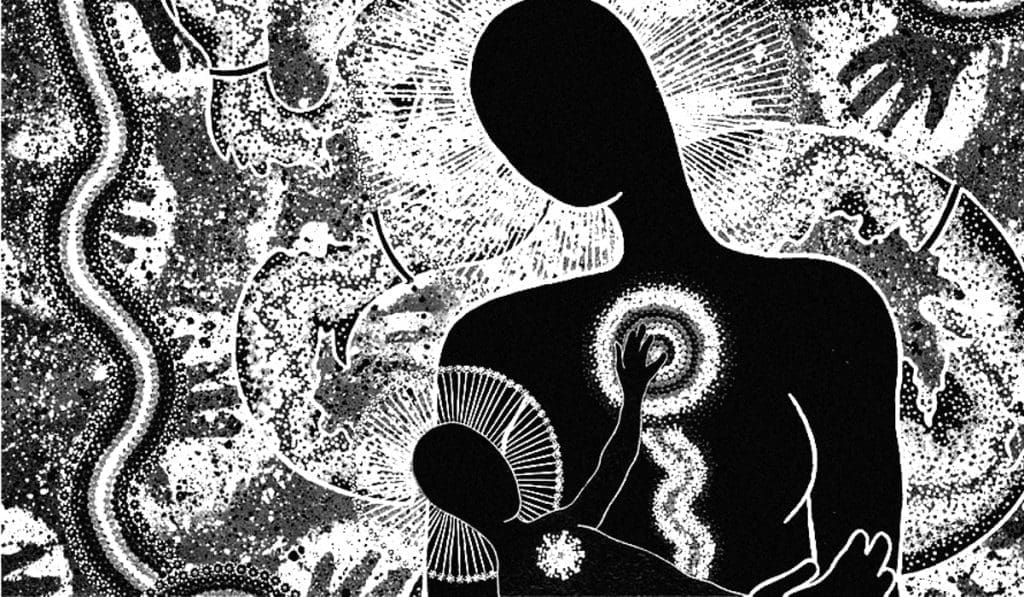
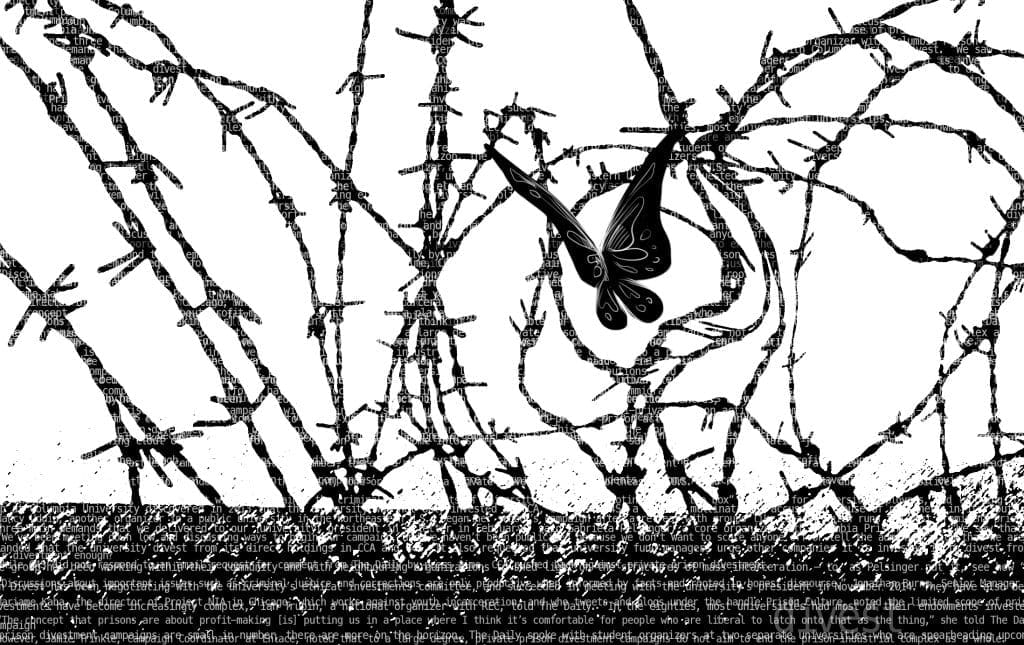
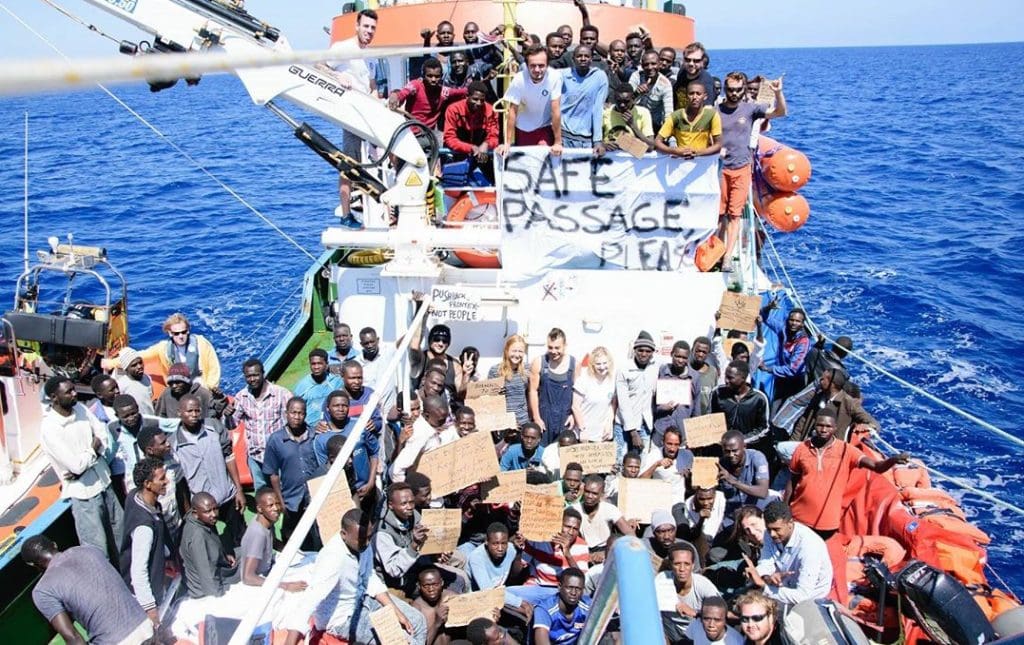
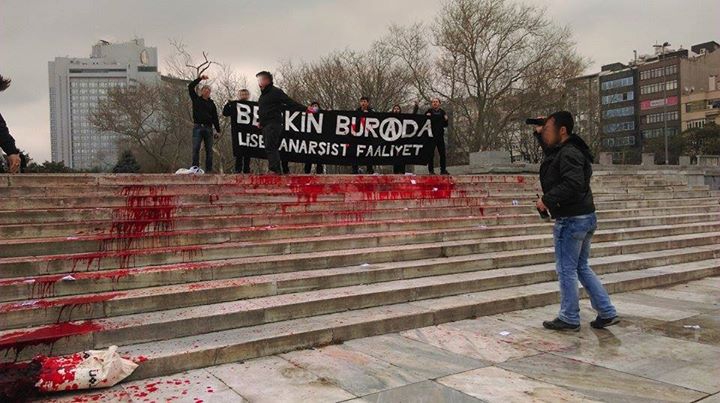
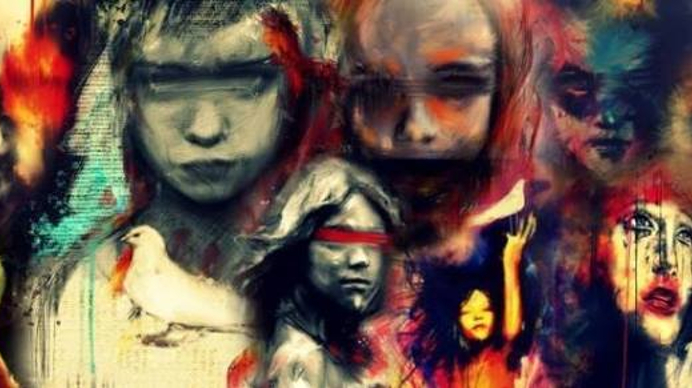
Pingback: Degrow or Die | aNtiDoTe Zine